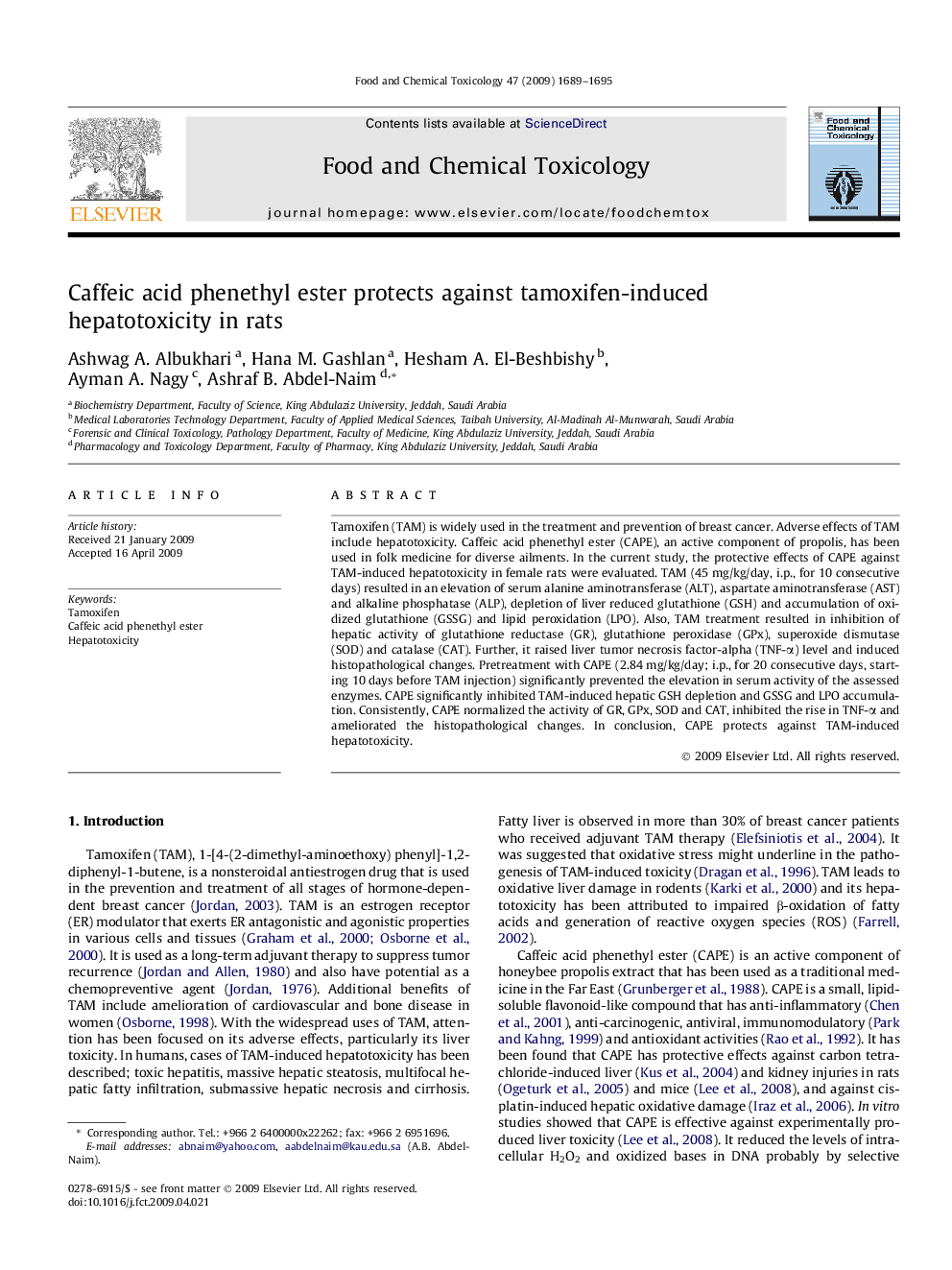| کد مقاله | کد نشریه | سال انتشار | مقاله انگلیسی | نسخه تمام متن |
|---|---|---|---|---|
| 2586285 | 1130896 | 2009 | 7 صفحه PDF | دانلود رایگان |

Tamoxifen (TAM) is widely used in the treatment and prevention of breast cancer. Adverse effects of TAM include hepatotoxicity. Caffeic acid phenethyl ester (CAPE), an active component of propolis, has been used in folk medicine for diverse ailments. In the current study, the protective effects of CAPE against TAM-induced hepatotoxicity in female rats were evaluated. TAM (45 mg/kg/day, i.p., for 10 consecutive days) resulted in an elevation of serum alanine aminotransferase (ALT), aspartate aminotransferase (AST) and alkaline phosphatase (ALP), depletion of liver reduced glutathione (GSH) and accumulation of oxidized glutathione (GSSG) and lipid peroxidation (LPO). Also, TAM treatment resulted in inhibition of hepatic activity of glutathione reductase (GR), glutathione peroxidase (GPx), superoxide dismutase (SOD) and catalase (CAT). Further, it raised liver tumor necrosis factor-alpha (TNF-α) level and induced histopathological changes. Pretreatment with CAPE (2.84 mg/kg/day; i.p., for 20 consecutive days, starting 10 days before TAM injection) significantly prevented the elevation in serum activity of the assessed enzymes. CAPE significantly inhibited TAM-induced hepatic GSH depletion and GSSG and LPO accumulation. Consistently, CAPE normalized the activity of GR, GPx, SOD and CAT, inhibited the rise in TNF-α and ameliorated the histopathological changes. In conclusion, CAPE protects against TAM-induced hepatotoxicity.
Journal: Food and Chemical Toxicology - Volume 47, Issue 7, July 2009, Pages 1689–1695